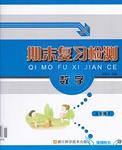
【题目】If you want to slow down,you must ________ harder on the brakes.
A.take B.press C.sweep D.carry
 品学双优卷系列答案
品学双优卷系列答案 小学期末冲刺100分系列答案
小学期末冲刺100分系列答案 期末复习检测系列答案
期末复习检测系列答案科目:高中地理 来源: 题型:
【题目】 假定英语课上老师要求同桌之间交换修改作文,请你修改你同桌写的以下作文。文中共有10处语言错误,每句中最多有两处,每处错误仅涉及一个单词的增加、删除或修改。
增加:把缺词处加一个漏符号(∧),并在其下面写出该加的词。
删除:把多余的词用斜线(\)划掉。
修改:在错的词下划一横线,并在该词下面写出修改后的词。
注意:1. 每处错误及其修改均仅限一词;
2. 只允许修改10处,多者(从第11处起)不计分。
The book I’m reading of talks about afternoon tea in Britain. It is said to have started in the early 1800’s. Have tea in the late afternoon provides a bridge between lunch and dinner, that might not be served until 8 o’clock at night. This custom soon becomes another meal of day. Interesting, it had a connection by the British porcelain(瓷器) industry. Tea in China was traditionally drank from cups without handles. When tea got popular in Britain, there was a crying need for good cup with handles to suit British habits. This made for the grow in the porcelain industry.
查看答案和解析>>
科目:高中地理 来源: 题型:
【题目】D
Max Vernon Mathews has been called the father of computer music. He created electronic tools so that people could use computers as musical instruments. He had a huge influence on the development of electronic music and how it is written, recorded and played.
In 1957, Max Mathews wrote the first computer program that enabled a computer to create sound and play it back. At the time, he was working as an engineer at Bell Laboratories in New Jersey. His computer program was called Music. It enabled a large IBM computer to play a seventeen-second piece of music that he had written.
The computer was so slow that it would have taken an hour to play the piece of music in seventeen seconds. For that reason, Mathews moved the work to a tape player, which could be sped up to play the music at a normal speed. He later said that the sound quality of the musical notes was not great, but the technical importance of the music was huge.
The science fiction writer Arthur C. Clarke visited Bell Laboratories in the 1960s. He heard a computer “sing” the song “Daisy Bell” on devices and programs developed by Max Mathews and other engineers. Clarke noted this technology in his book “2001: A Space Odyssey,” which was later made into a movie.
Mathews continued creating other versions of the Music program. He became interested in how computers could help musicians outside recording studios.
Max Mathews had a long and productive career. He worked with composers like John Cage and Edgard Varese. He helped create a center for research in computer music in Paris. And he taught at the Center for Computer Research in Music and Acoustics in Stanford University in California.
Mathews believed modern musicians were not making full use of the power of computer music. He said a violin always sounds like a violin, but with a computer, the way a violin sounds is unlimited. He said he did not want computer sounds to replace live music. But he said he hoped laptop computers would one day be considered serious instruments.
【1】 How did the program Music work according to the computer?
A. It helped design a computer program.
B. It made sound and play it on a computer.
C. It could record a seventeen-second piece of music.
D. It enabled a large IBM computer to work faster.
【2】 Mathews was likely to think that .
A. the first computer music was technically important.
B. the first piece of computer music was too short
C. the IBM computer was fit for creating slow music
D. the first piece of computer music wasn’t music indeed
【3】Which of the following is true?
A. Clarke helped develop computer music.
B. Mathews became a character in a movie later on.
C. Computer music was mentioned in Clarke’s book.
D. Clarke saw Mathews operate a singing computer.
【4】 It is implied in the last paragraph that .
A. Mathew wanted computers to take the place of live music.
B. a violin does make much
C. a computer can help improve sounds of traditional musical instruments
D. laptops are more suitable to be used as serious musical instruments
查看答案和解析>>
科目:高中地理 来源: 题型:
【题目】完形填空(每小题1分,共20分)
I wrote my first novel when I was 22. It was a 1 . I didn’t know how to properly format dialogue or 2 a plot. Those were all 3 I planned to work out later. I gave the book to my father to read, and within a day he left me a voice mail saying that it was 4 and that I was going to sell it for $300,000.
5 , and rather quickly, the book was 6 by every publisher in New York. If there were a literary prize for Most Rejections, I would have won it. I was 7 , of course, but I knew better than to 8 — writing wasn’t an easy job, and if this book wasn’t my 9 in, maybe the next one would be. I got back to work.
But this scenario(剧情) happened again: I wrote books…and then they wouldn’t 10 . Still, my father’s faith in me never wavered(摇摆), even 11 I worked a host of other jobs. Some of the jobs, like being a bookseller, were great and 12 to my writing life. Some, like selling overpriced jeans to 12-year-olds, were only good insofar as they were material for future 13 . And they were — because it finally 14 . I sold a book! I was going to make it big!
I completely agree with motivational speaker and author John Maxwell’s words: “Successful and unsuccessful people do not 15 greatly in their abilities but in their 16 tospan> reach their potential.” Life’s not 17 . It never was, it isn’t now, it won’t ever be. But do not fall into the entitlement trap of feeling you are a 18 , you are not. Get over it and 19 with it. And yes, most things are more 20 when you break a sweat to get them.
【1】A. mess B. mix C. confusion D. puzzle
【2】A. follow B. structure C. discover D. hatch
【3】A. facts B. messages C. meanings D. details
【4】A. practical B. complex C. wonderful D. dissatisfactory
【5】A. But B. Instead C. Therefore D. Regardless
【6】A. rejected B. accepted C. abused D. commented
【7】.A. depressed B. surprised C. frightened D. embarrassed
【8】A. continue B. fight C. withdraw D. write
【9】A. card B. ticket C. pen D. bill
【10】A. write B. buy C. work D. sell
【11】A. if B. because C. as D. since
【12】A. turned B. opened C. led D. contributed
【13】A. lives B. decisions C. stories D. jobs
【14】A. happened B. failed C. made D. passed
【15】A. vary B. change C. match D. diversify
【16】A. request B. demand C. hope D. desire
【17】A. sad B. happy C. hard D. easy
【18】A. witness B. victim C. owner D. winner
【19】A. get round B. get on C. get about D. get by
【20】A. challenging B. demanding C. rewarding D. paying
查看答案和解析>>
科目:高中地理 来源: 题型:
【题目】Based on a true story, the film shows a hero racing ______ time to get back the stolen papers.
A. behind
B. against
C. about
D. at
查看答案和解析>>
科目:高中地理 来源: 题型:
【题目】
--- You look great!
--- I ______ out. Check out my muscles!
A. will work
B. was working
C. have been working
D. had been working
查看答案和解析>>
科目:高中地理 来源: 题型:
【题目】I used to be a very self-centered person, but in the past two years I have really changed. I have started to think about other people 【1】 I think about myself. I am happy that I am becoming a 【2】 person.
I think my 【3】 started when I was at Palomar College. At first, I just wanted to get my 【4】 and be left alone. I thought I was smarter than everyone else, so I hardly ever 【5】 to anyone in my classes. By the end of my first semester, I was really 【6】 . It seemed as if everyone but me had made friends and was having fun. So I tried a(n) 【7】. I started asking people around me how they were doing, and if they were having trouble I 【8】 to help. That was really a big 【9】 for me. By the end of the year, I had several new friends, and two of 【10】 are still my best friends today.
A bigger cause of my new 【11】 , however, came when I took a part-time job at Vista Nursing Home. One old lady there who had Alzheimer’s disease became my 【12】 . Every time I came into her room, she was so 【13】 because she thought I was her daughter. Her real daughter never 【14】 her, so I took her place. She let me 【15】 that making others feel good made me feel good, too. When she died, I was 【16】, but I was also very grateful to her.
I think I am a much 【17】 person today than
A. since B. before C. or D. unless
A. famous B. simple C. different D. skilled
A. education B. career C. tour D. change
A. balance B. homework C. degree D. interest
A. talked B. wrote C. lied D. reported
A. careful B. lonely C. curious D. guilty
A. argument B. game C. experiment D. defence
A. dared B. offered C. hesitated D. happene
A. dream B. problem C. duty D. step
A. us B. which C. them D. whom
A. attitude B. hobby C. hope D. luck
A. friend B. partner C. guide D. guest
A. polite B. happy C. strange D. confident
A. bothered B. answered C. visited D. trusted
A. explain B. guess C. declare D. see
A. homeless B. heartbroken C. bad-tempered D. hopeless
A. quieter B. busier C. better D. richer
A. forget B. face C. improve D. analyze
A. forced B. preferred C. ordered D. taught
A. miss B. like C. wonder D. expect
查看答案和解析>>
科目:高中地理 来源: 题型:
【题目】用适当的介词填空。
【1】We are not content __________ our present achievements.
【2】I was fortunate __________ being elected captain of that team.
【3】Now my husband is bored __________ tennis and mad about football.
【4】We only picked __________ the ten best replies for the interview. And yours is just among them.
【5】In winter, thick snows can cut __________ the village for two weeks at a time.
【6】He’s a great actor and starred __________ so many good films.
【7】She asked for her mail to be directed __________ her home address.
【8】He entertained himself __________ his violin in his simple home.
查看答案和解析>>
科目:高中地理 来源: 题型:
【题目】阅读理解
阅读下列短文,从每题所给的四个选项(A、B、C和D)中,选出最佳选项
Kiss crisis, hug horrors and the UK's handshake headaches
Greeting someone, saying goodbye — these situations fill me with unease. You have a second to make a dangerous decision. One peck (轻吻)? Two pecks? Three? No kisses at all? Why, I think, as I crash into the other person’s face, why can’t it be as simple as a handshake?
A survey by the soap company Redox in May showed one in five Brits now feels a handshake is “too formal”, according to the Daily Mail. Some 42 percent said they never shook hands when greeting friends. For one third of people the alternative was a hug, for 16 percent a kiss on the cheek.
British people are known to be reserved (保守的) — unfriendly, some would say. Handshakes used to work for us because we didn’t have to get too close. But the super-British handshake is no longer fashionable. We want to be more like our easygoing Mediterranean neighbors who greet each other with kisses and hugs.
The trouble is, we still find it a bit awkward. What does a married man do when greeting a married female friend, for example? How should someone younger greet someone older?
Guys don’t tend to kiss one another; my male friends in Britain go for the “manly hug”, taking each other stiffly (不自然地) in one arm and giving a few thumps on the back with words like “Take it easy, yeah?”.
The biggest questions, if you do decide to kiss, are how many times and which cheek first. Unlike the French, who comfortably deliver three, our cheek-pecks usually end in embarrassed giggling (咯咯笑): “Oh, gosh, sorry, I didn’t mean to kiss you on the lips, I never know where to aim for first!”
But then it’s never been easy for us poor, uncomfortable Brits. Even the handshake had its problems: don’t shake too hard, but don’t hold the other person’s hand too limply (无力地) either, and definitely don’t go in with sweaty hands.
Maybe it’s better to leave it at a smile and a nod.
【1】What is the article mainly about?
A. Origin of the traditional British way of greeting someone.
B. New trends and problems that Brits have with the way they greet people.
C. Why the author feels uneasy when greeting someone or saying goodbye.
D. Differences in greetings between Britain and other Western countries.
【2】What did the survey by the soap company Redox show?
A. It is now considered unfriendly to greet friends with a handshake in Britain.
B. A kiss on the cheek is becoming the most popular form of greeting in Britain.
C. Most Brits no longer offer to shake hands with those they meet.
D. More and more Brits prefer to be greeted with a hug or kiss.
【3】The underlined word “awkward” in paragraph 4 is closest in meaning to ________.
A. not helpful
B. too informal
C. quite embarrassed
D. very interesting
【4】Which does the author think might be the safest form of greeting for a British person?
A. A hug.
B. A smile and a nod.
C. A handshake.
D. A kiss on the cheek.
查看答案和解析>>
湖北省互联网违法和不良信息举报平台 | 网上有害信息举报专区 | 电信诈骗举报专区 | 涉历史虚无主义有害信息举报专区 | 涉企侵权举报专区
违法和不良信息举报电话:027-86699610 举报邮箱:58377363@163.com